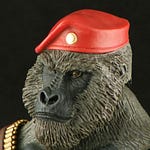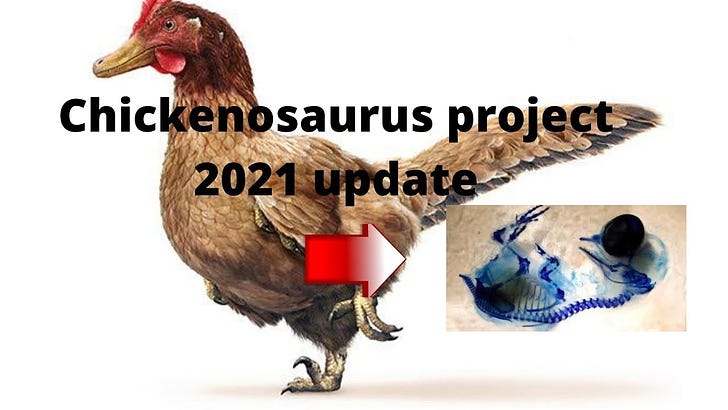My one trip to northern Arizona, described in this episode, entailed not only a “death hike” through the mountains, but a 1400-mile car loop through the high desert, an environment I loved, visiting various Pueblo ruins and the Painted Desert. We never made it as far as the Grand Canyon.

The Iron Chef reference was driven by this quote from the interview, on being a lab bench scientist vs the field scientists so many of us imagine we’ll become.
She’s the fisherman out on the sea, gathering the interesting critters.
I just slice ‘em up and put ‘em on a plate.
Original Blurb from 2011
Actually, Jonesy was a pretty good cook. He had a one-skillet specialty he called "man food," composed mostly of sausage, potatoes, and onions. I know I talk about grad school a lot on this podcast, but it's a serious investment -- 5 or 6 years on average in the sciences -- and it's an open-ended investment, which people take on without being fully informed. Other professional programs are more predictable. Law school is 3 years. Medical school is 4 years. There are benefits, too. I came out of grad school with zero debt. Of course, I was also sharing an apartment and eating "man food."
This was my first experiment with Audacity's envelope editing functions. I was sitting closer to the laptop microphone than he was, and his voice varied in loudness a lot more than mine did. It was an interesting challenge to try and even that out, to (as Krusty would say) get the loud part quiet and the quiet part loud. Let me know how I did. You can also directly compare the clean sound of the Sony recorder on the intro and the outro to the noise of the built-in laptop microphone during the interview quite directly.
Updates from 2021
Corbin’s lab has continued to evolve, beyond his own status as a waxing gibbous / full professor.
We spoke quite a bit during the interview about the individual decision-making that goes into choosing a scientific career, but we did not discuss the social side of graduate school, how labs can become families (sometimes deeply dysfunctional families!) and the hugely international, cosmopolitan nature of the worldwide scientific community, on display here in a “candid” pic from a lab dinner. These kinds of things really do happen, at least in the good labs.

I continue to focus on these career issues, both in my occasional teaching and in my business, which is all about how we expand informal learning and integrate it into the formal educational system, which is changing rapidly, as in the article below.
https://www.wired.com/story/pandemic-homeschoolers-who-are-not-going-back/
Many educators regard homeschooling as a threat to the formal system. I see it as an opportunity to enrich and reform said system, which is something I may write more about in the fall. Stick around.
REFERENCES from the episode
https://www.dpacnc.com/news/detail/monty_pythons_spamalot_is_coming_to_dpac
https://en.wikipedia.org/wiki/Mogollon_Rim
https://www.reed.edu/ (The small college where Jones was a flunky for the bio dept)
https://www.rochester.edu/ (The larger small college where we both did grad school)
Texas biomes (NC is a similar though less extreme situation)
A science lab is a small business.












Share this post